Health & Safety Policy
Langshott Ladybirds Nursery is a committee run, non-profit making, sessional nursery situated in a self-contained outside classroom within the grounds of Langshott Primary School.
Our admission policy is inclusive: we welcome children from all backgrounds, cultures, religions and also those with additional needs.
The aim of Ladybirds Nursery is to provide a supportive place in which children can develop a good knowledge of procedures to keep themselves safe, clean and healthy. We aim to ensure that adults provide good role models.
The nursery manager or in the absence of the nursery manager the assistant nursery manager is responsible for the health and safety of children and adults at the nursery.
A fully equipped first aid box and eye station is kept on the premises in a locked cupboard, out of the reach of children.
A minimum of two members of staff with first aid training are in attendance at all times (all nursery staff are trained first aiders). All staff will be required to attend training courses in relation to health and safety and update accordingly.
The qualified first aiders are responsible for ensuring that the contents of the first aid box are kept fully supplied and within date. The nursery manager has responsibility for ordering of equipment and overseeing.
In the case of an accident or incident, a written, confidential record is kept in the accident/incident record book. A copy of the record will be given to the parent concerned.
The nursery mobile phone is on the premises at all times should an emergency occur, all staff are aware of the emergency procedure as follows…
Procedure for an injured or sick child
In the case of a serious incident or accident
Ladybirds nursery must notify ofsted of any serious accident, illness or injury to, or death of, any child whilst in their care, and of the action taken.
Notification must be made as soon as is reasonable practical, but in any event within 14 days of the incident occurring.
Ladybirds nursery must notify the local child protection agency of any serious accident or injury to, or the death of, any child whilst in their care and must act on the advice given by the agency.
Infectious Diseases
Please refer to the payment and notice policy for further information on absence.
Please refer to the pandemic policy for further information on the prevention of infectious diseases in nursery.
Safe use of equipment
Equipment used at Ladybirds is good quality. We have a wide variety of equipment aimed at all areas of the curriculum. New equipment is purchased regularly from reputable dealers specialising in equipment for nurseries and the early years. Books and equipment reflect our multicultural society and promote positive images of people of all races and cultures. Our varied equipment presents challenges and is aimed at meeting the needs and interests of each individual child.
Safety in the Nursery
The nursery building is rented from the Langshott Primary School. The school is responsible for the upkeep of the main building. The rental agreement may be viewed on application to the nursery manager. A premises check is carried out regularly and any issues are reported to the school.
Please see the policy on late collection or non collection of a child.
Outings
Full risk assessments will be carried out for specific outings offsite. These will include adult child ratios, insurance, staff duties, parent help, activity, transport, food and drink, health and safety. Please see the Outings policy within this file for further information
Hygiene
Food and Drink
Administration of Medicines and Health Care Plans
Where a child has allergies or a medical condition or disability requiring medication, a Health Care Plan must be completed by the parent/carer with the Nursery Manager or SENCO prior to attendance.
Copies of this plan will be circulated amongst nursery staff to ensure all team members are fully informed of the requirements of the plan and a copy stored with the child’s medication sheet.
Details of the health care plan for individual children may be forwarded to the company providing insurance to Langshott Ladybirds Nursery as part of the requirements of the policy. The child may attend the nursery after confirmation from the insurers that the nursery insurance is not affected.
Only prescribed medication can be given to children by nursery staff. Parents should provide daily written permission and instructions on administration of medicine. Parents must notify the nursery of the time the most recent dose was administered. Medication must be clearly marked with the pharmacist sticker, showing the child’s name and the correct dosage on the container.
Jewellery
Smoking, Drugs, Alcohol
Pets
In order to maintain a clean and safe environment, dogs are not allowed on the school site. To further reduce risk, dogs must not be tethered on the site boundaries.
A Surrey County Council bylaw restricts dogs from being brought onto the school site.
Nappy Changing
Staff at Ladybirds are kept up to date with current legislation with regard to health and safety practices. Staff attend specific training where required.
*There is no requirement, as of legislation in 2005, to dispose of nappies in purpose made bins or bags as they are not considered to be hazardous waste by the Environment Agency.
This policy was written using support information from the Surrey CC website and the health and safety at work act and our EYCS advisor.
This policy reflects the requirements of the EYFS 2024.
This policy was updated February 2024.
